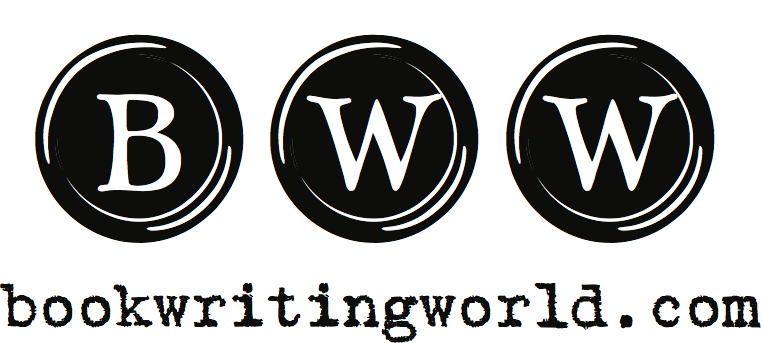I am deep in a final revision (final, that is, until the next round–led, I hope, by editors who want to publish my book or, if must be, by my agent) of my novel-in-progress. I thought I’d share a bit about my process for editing myself. Devi, our blog editor, recently re-published some of my posts about editing yourself, if you want a more step-by-step version, but here is an example, ink-stained fingers and manuscript pages and all.
First: how many drafts of this book have I written? Let me count the ways . . . First I did a NaNoWriMo draft, which bears only a thin, conceptual relationship to the final version, but which was over 80,000 words in length. What this draft did was allow me to approach an idea I’d held for a long time and to explore it, get it wrong, have fun with it. There are still things I love about that book. One of those things is the voice.
I’ve discovered that many professional writers have a sense of an innate voice, a voice that is easy, perhaps even natural to them–and against which they work, hard. Mine is a sort of nostalgic, intellectual voice. I rarely let it out in my fiction, but it drives the first draft of my novel.
A few partial drafts followed that, as I tried to find my way into the story itself (realizing that what I’d written was only the frame story). I also changed the frame story, and I have various versions of scenes between those characters who are no longer part of the current novel. As I began to approach the story itself, Angie asked me why I needed the frame story at all. After a great deal of resistance and probably anger, I realized that she was right.
Now I was grappling with the story itself. But it was based on a real person: Franz Kafka. I was researching his life and trying to write it all. A note about the research process: At first I felt utterly overwhelmed. But I kept reading. It was never enough, but on I trundled, doing what I could. And eventually I realized that I knew the story of his life, at least the public story. When I was reading something about him and the source got something wrong, I knew it. The same information began to recirculate. It was a wild ride, but I had mastered the material–enough to write a novel.
I did another partial NaNoWriMo draft. I wrote about 25,000 words, all scenes from the life. I don’t think any of these are in the final draft, but they are a significant part of the iceberg of the book.
| “If a writer of prose knows enough of what he is writing about he may omit things that he knows and the reader, if the writer is writing truly enough, will have a feeling of those things as strongly as though the writer had stated them. The dignity of movement of an ice-berg is due to only one-eighth of it being above water. A writer who omits things because he does not know them only makes hollow places in his writing.” |
| —Ernest Hemingway see Wikipedia entry Iceberg Theory |
Please note that by this time, I’d written and discarded well over 100,000 words.
Then I sat down and did a lot of work, guided by Angie, to nail the shape and structure of the book according to what was most important to me about the book. This is one of Angie’s principles–I suppose it’s common sense in a way, to keep what matters to you most in mind as you make and re-make your choices, but it is easy to get counter-intuitive when you are deep in the writing process, and so I note it hear in case it’s a helpful reminder to you.
My story does not end there.
Having nailed my structure (and perhaps I wrote another 10 – 20,000 words in the process, at any rate, I completely filled a couple of moleskin notebooks), I wrote a complete draft in a few months. This one was about 80,000 words. My writing group loved this draft . . . and they had some good notes for me.
So I wrote another draft, a revision of this draft rather than the page-one rewrite I’d done last round.
It was this draft — my 4th? 5th? — that snagged me my agent. And yes, she had some great notes, too–especially this: what if I changed the point of view of the novel?
I grappled with this, went back to Angie’s structure work and did it all again. Filled another notebook. And then I wrote another draft, including about 50,000 brand new words. Back to my writing group. The good news? They loved it again. They loved it more. The point of view shift had done what my agent had hoped. This book had more tension, more mystery, more passion. Great.
Did they have notes for me? You bet your sweet manuscript they did. It is those notes I am working with now.
First, I read through the entire manuscript again, making any changes I saw by hand, scribbling a few extra lines in the margins, marking points I needed to check (for grammatical or historical accuracy, for example), and making notes of larger changes I needed to make, scenes to write, arcs and characters to develop. Then I spent a few days inputting those more minor changes into the computer. Oh, and I moved sections around, ironing out the structure.
Today I sat down and went through the manuscript, making a list of these major changes. There were 34 changes on the list, some with multiple parts. And another couple dozen points to check.
I guess the list-making was my way of cutting the work out for myself. Now all I have to do is tackle it . . .
How do you approach revision? Did you start off thinking you write a book once? Have you discovered any different?
Elizabeth Stark is the author of the novel Shy Girl (FSG, Seal Press) and co-director and co-writer of several short films, including FtF: Female to Femme and Little Mutinies (both distributed by Frameline). She earned an M.F.A. from Columbia University in Creative Writing. Currently the lead mentor and teacher at the Book Writing World, she’s taught writing and literature at UCSC, Pratt Institute, the Peralta Colleges, Hobart & William Smith Colleges and St. Mary’s College. She’s at work on a novel about Kafka.



I love all of the questioning–you’re asking yourself questions and getting others to ask or inspire questions–that’s part of the process. In particular, the “have I done enough research?” question is crucial.
thanks for posting this. I was curious about your process, as lately it feels as though I cannot see the light at the end of the tunnel. On the bright side, the work I have and continue to do gets deeper and better – I hope that also means closer to finishing. It also feels like I could be working on this the rest of my life (which is a real possibility that motivates me to work a little more, a little faster).
How many hours a day or week do you typically put into this Elizabeth? and do you just make notes in your notebook (by hand) that helps guide the next revision step?
Lastly, congrats on working so hard and being fully committed. I’m sure I will love it!!! 🙂
Your post caught my eye I recltney finished my first novel. It’s now available as an e-book, and I am working on the print version, which I will self-publish. Two thoughts: Editing is a lot harder than I thought. I had three first readers that was quite enough but I had no line editors. I did the line editing myself, probably a mistake. After the upteenth time of re-reading, I still caught minor errors, such as a reversed single curly quote. I now believe a writer should line edit his own work only after others have done so I say others because it is an advantage to have several eyes on your manuscript. Second thought: You are proposing to publish your novel on your blog. Give some thought to using an e-book service such as Smashwords.com. You can set the price at 0 yes, a big fat zero and allow your followers to read it in a format they are comfortable with. Or,. you can set a minimal price and give your followers a coupon that can discount the price 100^.Good luck!